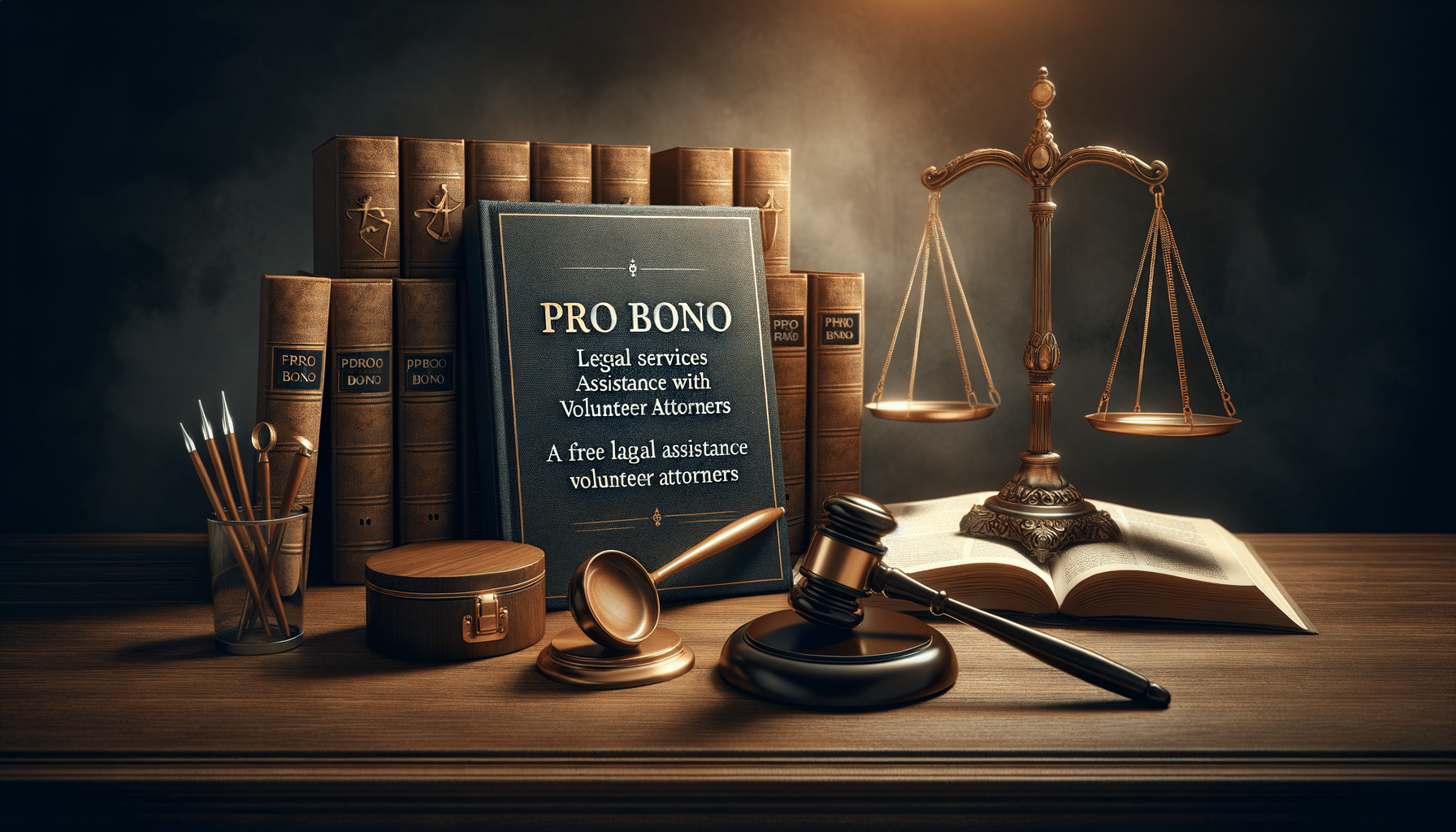Understanding Pro Bono Legal Services
Pro bono legal services are a lifeline for many individuals who cannot afford legal representation. The term “pro bono” originates from the Latin phrase “pro bono publico,” meaning “for the public good.” This concept is deeply ingrained in the legal profession, where attorneys voluntarily offer their expertise to assist those who are unable to pay for legal services. These services are often provided in areas such as family law, immigration, housing, and civil rights, where legal representation is crucial but frequently inaccessible due to financial constraints.
In practice, pro bono work is not just about providing free legal help; it is about ensuring access to justice for all, regardless of economic status. Many law firms and individual attorneys dedicate a portion of their practice to pro bono work, sometimes encouraged by bar associations that set aspirational goals for pro bono hours. This commitment not only helps individuals in need but also enriches the legal profession by allowing lawyers to tackle diverse and challenging cases.
Pro bono services play a critical role in addressing the justice gap—the disparity between the legal needs of low-income individuals and the resources available to meet those needs. According to a report by the Legal Services Corporation, over 86% of the civil legal problems reported by low-income Americans received inadequate or no legal help. Pro bono efforts by lawyers help to bridge this gap, providing essential support where it is most needed.
Exploring Free Legal Assistance Programs
Free legal assistance programs are designed to provide support to individuals who cannot afford to hire an attorney. These programs can be found in various forms, including legal aid societies, nonprofit organizations, and law school clinics. Each of these entities plays a significant role in delivering legal services to underserved communities.
Legal aid societies are often the first point of contact for individuals seeking free legal assistance. These organizations are typically funded by a combination of government grants, private donations, and contributions from the legal community. They offer a wide range of services, from legal advice and representation to educational workshops and self-help resources. Legal aid societies often focus on specific areas of law, such as housing, employment, and public benefits, where the demand for assistance is particularly high.
Nonprofit organizations also contribute significantly to the provision of free legal assistance. These organizations may focus on particular issues, such as domestic violence, immigration, or disability rights, and often work in collaboration with other service providers to offer comprehensive support. By leveraging partnerships and resources, nonprofits can extend their reach and impact, helping more individuals navigate the complexities of the legal system.
Law school clinics offer another valuable resource for free legal assistance. These clinics provide law students with practical experience while serving the community. Under the supervision of experienced faculty, students represent clients in real cases, gaining firsthand insights into the legal process. This model benefits both the students, who develop essential skills, and the clients, who receive much-needed legal support.
The Role of Volunteer Attorneys
Volunteer attorneys play a pivotal role in the delivery of pro bono legal services. By donating their time and expertise, these lawyers provide critical support to individuals who might otherwise be unable to access legal representation. Volunteer attorneys come from diverse backgrounds, including private practice, corporate legal departments, and government agencies, each bringing unique insights and skills to their pro bono work.
One of the primary motivations for attorneys to engage in volunteer work is the opportunity to give back to the community and make a meaningful difference in the lives of others. This altruistic drive is often coupled with professional development goals, as pro bono work allows lawyers to expand their practice areas, enhance their skills, and gain exposure to new legal challenges.
Volunteer attorneys often collaborate with legal aid organizations and nonprofit groups to provide services in areas of high demand. They may participate in clinics, workshops, or direct representation programs, offering their services on a short-term or ongoing basis. This flexibility allows attorneys to contribute in ways that fit their schedules and expertise, maximizing the impact of their efforts.
The contribution of volunteer attorneys is invaluable, not only in terms of the immediate assistance they provide but also in fostering a culture of service within the legal profession. By setting an example for others, volunteer attorneys help to promote the importance of pro bono work and encourage more lawyers to get involved.
How to Access Pro Bono and Free Legal Services
For individuals seeking pro bono or free legal services, knowing where to start can be daunting. However, there are several resources available to help navigate this process. The first step is often to contact a local legal aid society or nonprofit organization that offers services in the relevant area of law. These organizations typically have intake processes to assess eligibility and determine the appropriate level of assistance.
Many state and local bar associations maintain directories of pro bono programs and volunteer attorney networks. These directories can be invaluable resources for finding legal help. Additionally, some bar associations offer referral services that connect individuals with volunteer attorneys who have expertise in specific legal areas.
Online platforms have also become increasingly important in connecting individuals with legal resources. Websites dedicated to pro bono work often provide directories of services, informational guides, and self-help tools. These platforms can be particularly useful for individuals in remote areas or those with limited access to traditional legal services.
For those who qualify, law school clinics can be another avenue for obtaining free legal assistance. Contacting local law schools to inquire about clinic availability and areas of practice can lead to valuable support. It’s important to note that while clinics offer free services, they may have limited capacity and specific eligibility criteria.
By leveraging these resources, individuals can access the legal support they need, ensuring that justice is within reach regardless of financial circumstances.
Conclusion: Bridging the Justice Gap
The availability of pro bono legal services, free legal assistance programs, and volunteer attorneys is crucial in addressing the justice gap that affects so many individuals. By providing access to legal representation and support, these services empower people to navigate the legal system effectively and protect their rights.
As the demand for legal services continues to grow, the role of pro bono work becomes even more vital. Encouraging more attorneys to engage in volunteer efforts and supporting organizations that provide free legal assistance are essential steps toward ensuring equal access to justice for all.
Ultimately, the collective efforts of pro bono lawyers, legal aid societies, and volunteer attorneys help to create a more equitable legal system—one where everyone, regardless of economic status, has the opportunity to seek justice and find resolution.








